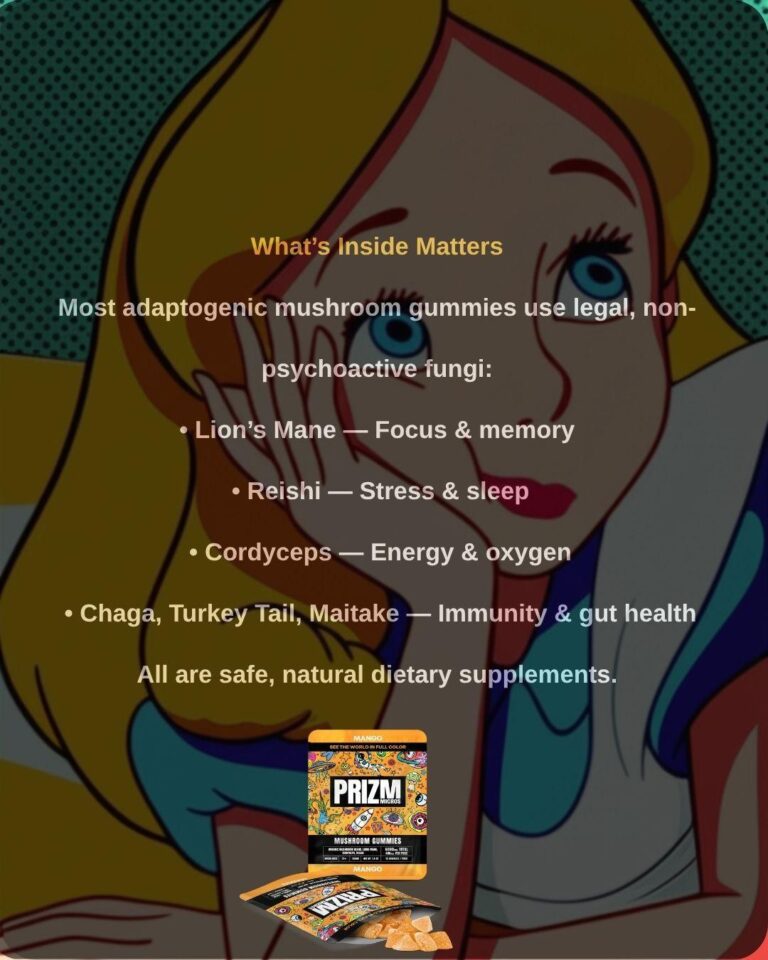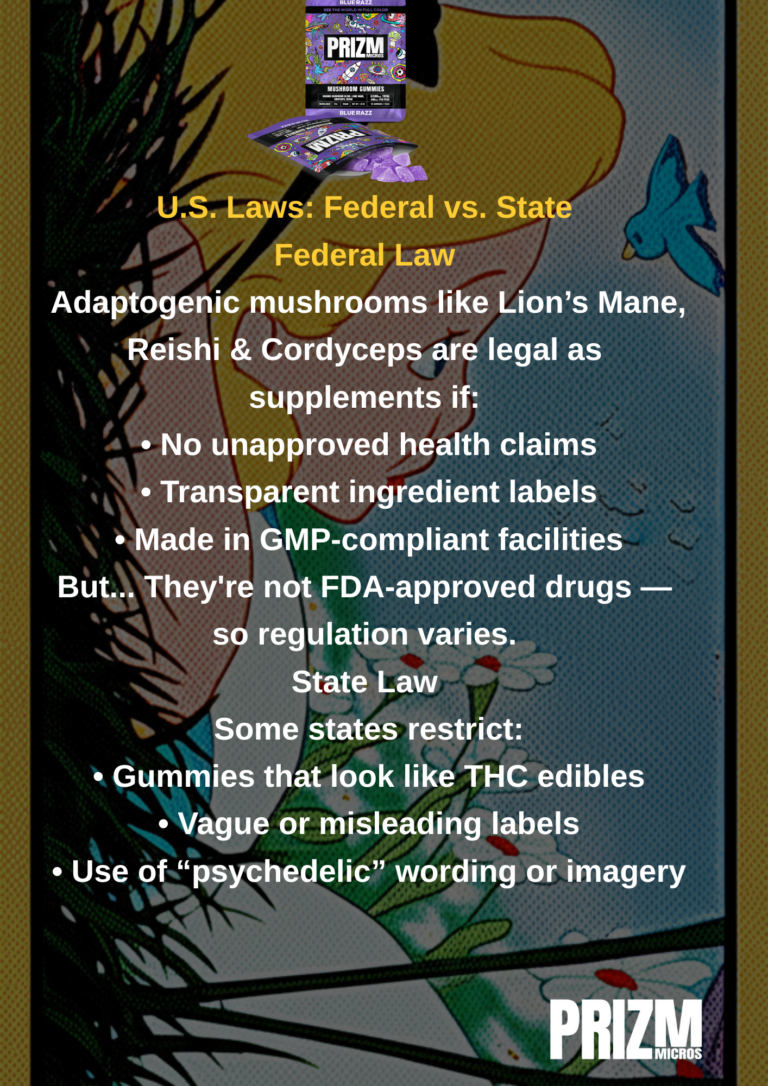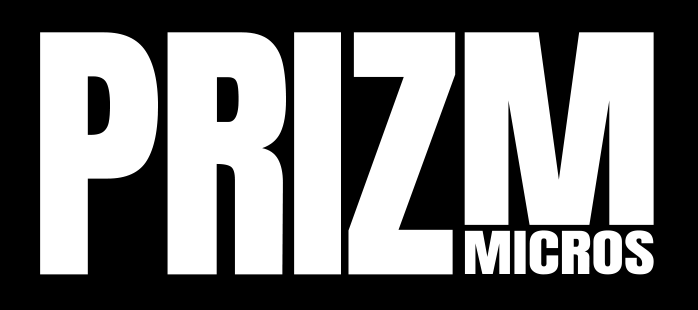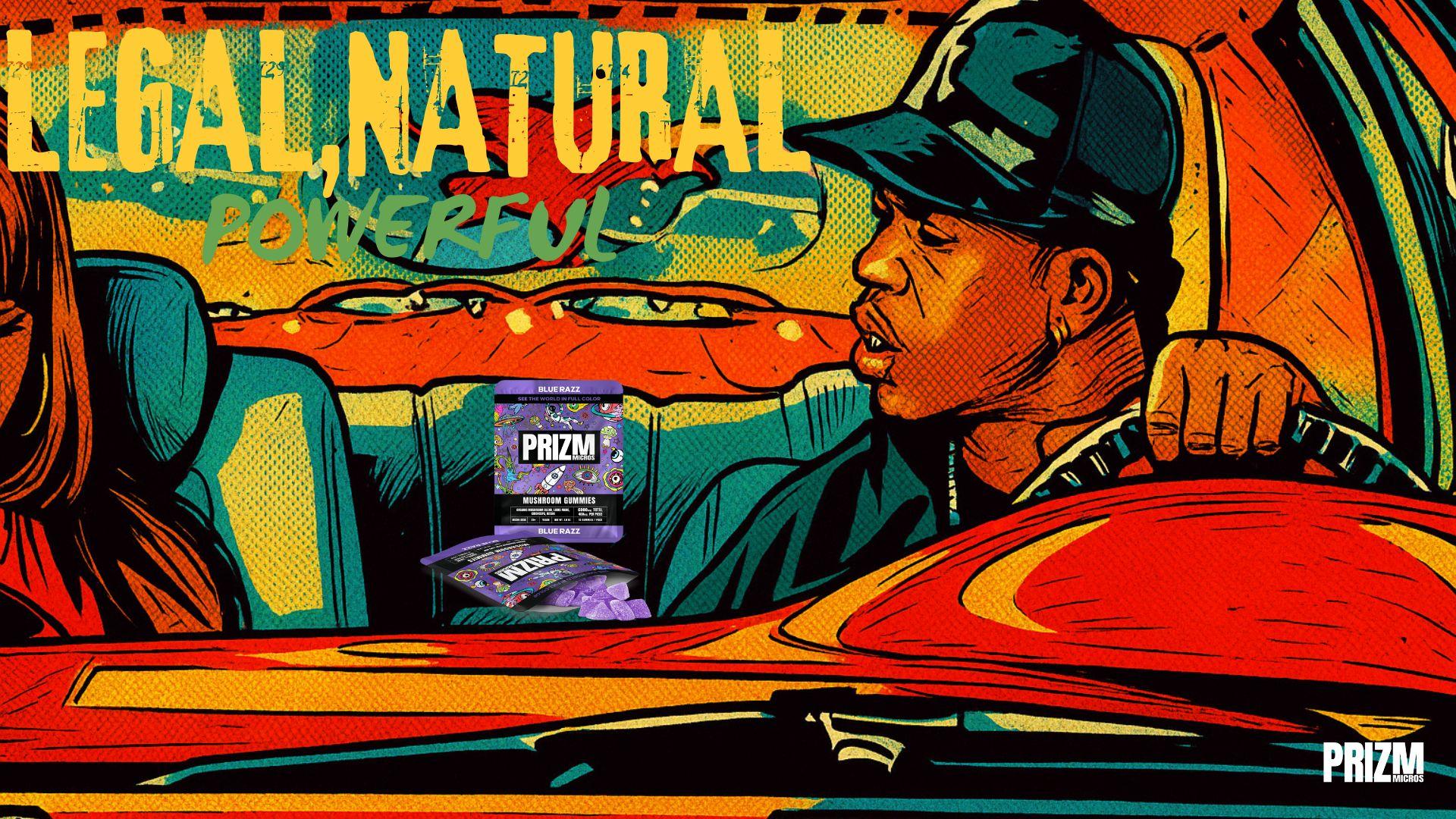Yep, they’re legal, if done right. Adaptogenic mushroom gummies made from non-psychoactive fungi like Lion’s Mane or Reishi are supplement legit. No trips, no DEA flags. Just make sure it’s clean, clearly labeled, and not some sketchy blend hiding behind buzzwords.
Adaptogenic Mushroom Gummies Are Everywhere, But Are They Legal?
You’ve seen the buzz. Adaptogenic mushroom gummies are lining wellness shelves, TikTok feeds, and online carts faster than you can say “Lion’s Mane.” They promise focus without the fog, energy without the jitters, and calm without the crash. But there’s one question that lingers under all the hype:
Are adaptogenic mushroom gummies actually legal?
The short answer: Yes, mostly.
But the long answer is where it gets interesting and important.
These gummies fall into a unique legal zone. They’re not drugs. They’re not candy. They’re dietary supplements, sometimes. Other times, they straddle the line between functional food and nootropic stack. And depending on what’s inside (and how it’s labeled), that line can shift fast.
If you’re here, you’re probably one of two people:
- A wellness-first consumer trying to feel better without crossing a legal boundary
- Or a brand builder trying to launch something smart, safe, and compliant
Either way, this guide is for you. Let’s break down the legal reality of adaptogenic mushroom gummies—ingredient by ingredient, format by format, and state by state. Because “legal” shouldn’t mean “confusing.”
What’s Actually in Adaptogenic Mushroom Gummies—And Why That Matters Legally

Before we talk legality, we have to talk ingredients. Because when it comes to mushroom gummies, what’s inside dictates whether it’s a supplement, a functional food—or a regulatory headache.
Here’s the core: most adaptogenic mushroom gummies are legal because they use non-psychoactive, well-known functional fungi like:
- Lion’s Mane (Hericium erinaceus) – for focus, memory, and mood
- Reishi (Ganoderma lucidum) – for stress and sleep support
- Cordyceps (Cordyceps militaris) – for energy and oxygen utilization
- Chaga, Turkey Tail, and Maitake – for immune and gut health
All of these are legal for sale and consumption in the U.S. when used as dietary supplements. They’re Generally Recognized As Safe (GRAS) or commonly used in herbal products.
But the legal gray zone shows up with what gets stacked on top:
- Is it made with fruiting body or just cheap mycelium on grain?
- Are cannabinoids like Delta-8 or HHC added?
- Is there muscimol from Amanita muscaria involved?
- Are vague proprietary blends hiding real psychoactives?
For a gummy to be legally compliant and Shopify-safe, it needs to be clearly labeled, free from banned substances, and non-psychoactive in both intent and effect. That’s why at PRIZM, we don’t touch anything sketchy or unsourced, we’re legal, functional, and transparent on every label.
Coming up next: the gummy-specific regulations that can make or break compliance. Because yes, format matters.
Why Format Matters: The Legal Implications of Gummy vs. Capsule vs. Powder
Here’s the curveball most supplement seekers (and even some sellers) don’t see coming: the format of your adaptogenic mushroom supplement can impact its legal treatment.
Gummies may seem like a candy-coated delivery system, but to regulators, they raise different flags than capsules or powders.
Why Gummies Get More Scrutiny
- Look-alike risk: Gummies resemble edibles, especially THC products. That visual similarity can trigger stricter oversight, especially in states with cannabis regulations.
- Marketing & appeal: Bright packaging, candy flavors, and “mood-enhancing” claims attract attention from both consumers and watchdogs (think FDA, FTC, and state attorneys general).
- Dosage masking: It’s easier to hide psychoactive ingredients or overhype adaptogenic effects in a sweet base without proper disclosure.
Capsules & Powders Fly Under the Radar, But Aren’t Immune
While capsules and powders still require accurate labeling and safe formulation, they’re less likely to be confused with recreational drugs. As a result, they’re treated more like traditional supplements.
But here’s the key: the ingredients determine legality, not just the format.
For Brands, the Gummy Format Brings These Added Compliance Must-Haves:
- Exact active dosing (e.g., 500mg Lion’s Mane 10:1, not just “blend”)
- Childproof packaging if there’s even a hint of psychoactivity
- No claims that imply a drug-like or euphoric effect
- Label language that clearly differentiates from cannabis edibles
What Makes a Mushroom “Adaptogenic” and Why That Legal Label Matters
“Adaptogenic” sounds like a wellness buzzword, and it kind of is. But it’s also a legally meaningful distinction that helps separate mushroom gummies from regulated drugs or psychoactive substances.
So What Is an Adaptogen, Legally Speaking?
In the supplement world, adaptogens are defined as natural substances that help the body resist stressors, without altering consciousness or acting like a drug. The key? They’re supportive, not stimulatory. Restorative, not intoxicating.
To be considered an adaptogen, a mushroom must:
- Be non-toxic at normal doses
- Help restore homeostasis (balance in stress response, mood, immune function)
- Act in a nonspecific way (i.e., support multiple systems, not just one)
This definition is crucial when it comes to legal interpretation and regulatory safety.
Which Mushrooms Fit the Adaptogenic Bill?
- Lion’s Mane – Supports neurogenesis and mood balance via NGF stimulation
- Reishi – Balances cortisol, enhances immunity, and promotes sleep
- Cordyceps – Boosts oxygen efficiency and energy metabolism
- Chaga – Antioxidant powerhouse with gut and immune benefits
- Turkey Tail – Supports immune modulation and microbiome balance
- Maitake – Helps regulate blood sugar and immune response
These mushrooms are not classified as drugs because they don’t alter perception or trigger dependency, and that’s what keeps them legal in supplement form.
Where Legal Lines Get Blurry
If a product contains:
- Unregulated psychoactives (e.g., Delta-8, muscimol)
- Claims like “elevated mood” or “psychedelic calm”
- Stacked stimulants that override adaptogenic subtlety
…it can cross the line from wellness supplement into regulatory hot water.
Why This Matters for Consumers and Brands Alike
Using the term “adaptogenic mushroom gummies” isn’t just trendy—it’s a compliance strategy. It signals that the product is:
- Non-intoxicating
- Safe for daily use
- Designed to support—not hijack—your biology
The Gummy Format: Delicious Delivery or Legal Distinction?
Let’s talk form factor. A mushroom is a mushroom, right? Not quite—especially when it’s packed into a tasty little chew. Gummies aren’t just fun—they have legal and formulation implications.
Why Format Matters
Adaptogenic mushroom gummies fall under dietary supplement regulations—but their candy-like form means they’re often scrutinized more heavily by regulators. Why?
- Gummies look like food—but are marketed as health aids
- Their appeal to younger users raises child safety concerns
- Mislabeling or confusion with THC edibles increases the risk of enforcement
Are Gummies Regulated Differently Than Powders or Capsules?
Technically, no—the FDA regulates all formats under the Dietary Supplement Health and Education Act (DSHEA). But in practice, gummies often raise red flags due to:
- Vague health claims (“focus boost,” “mood enhancer”)
- Sugars, dyes, or synthetic fillers that undermine wellness messaging
- Ambiguous packaging that could be confused with cannabis edibles
Legal Clarity Requires Label Clarity
To stay compliant, gummy brands must:
- Use specific supplement facts with exact dosages
- Avoid disease claims like “treats anxiety” or “cures depression”
- Include disclaimers (e.g., “Not intended to diagnose, treat, or prevent disease”)
- Distinguish clearly from psychoactive or cannabis-infused products
And What About Potency?
The gummy format limits the amount of active compound you can deliver per unit. This is where standardized extracts and dual-extraction methods shine—ensuring efficacy without overstuffing.
Look for:
- Clear milligram amounts per mushroom (not just total blend)
- Beta-glucan percentages for immune-supportive mushrooms
- No hidden caffeine or synthetic boosters
Why PRIZM Gummies Pass the Test
PRIZM products are formulated with full transparency:
- Fruiting body extracts only (no mycelium filler)
- Dual-extracted for full-spectrum benefits
- Third-party lab-tested for active content and safety
- Designed for adults—not candy-coated confusion
The Regional Reality: Where Are Adaptogenic Mushroom Gummies Legal?
So, are these delicious, adaptogen-packed gummies legal everywhere? The answer, like the gummies themselves, isn’t always straightforward. Legality depends on what’s inside, how it’s labeled, and where you are.
United States: Federal vs. State Laws

At the federal level, most adaptogenic mushrooms like Lion’s Mane, Reishi, and Cordyceps are legal as dietary supplements—but only if they meet FDA supplement standards:
- No unapproved health claims
- Clear ingredient disclosure
- Safe manufacturing practices (GMP-compliant)
But because these mushrooms aren’t FDA-approved drugs, they operate in a regulatory gray zone. That’s where state laws come in.
State-Level Differences
Some states have stricter rules around:
- Gummies resembling cannabis edibles
- Vague or misleading supplement labeling
- Use of the term “psychedelic” or imagery suggesting intoxication
For example:
- California permits mushroom supplements but has tighter scrutiny on packaging and wellness claims
- New York cracks down on anything that could be mistaken for a psychoactive product
- Texas has looser supplement rules—but also enforces harsh penalties for mislabeling
Always check your state’s health and consumer protection laws before selling or distributing mushroom gummies—especially if your product contains ingredients like cannabinoids or exotic adaptogens.
International Markets
Want to sell globally? Not so fast:
- EU classifies many mushrooms as “novel foods,” requiring special approval
- Canada allows adaptogenic mushrooms, but your label must be compliant with NHP regulations
- Australia and Japan restrict even common adaptogens like ashwagandha or Rhodiola
The Big Takeaway?
“Legal” isn’t one-size-fits-all. The same gummy could be fine in Florida but flagged in Finland.
Gummy or Ganja? How to Avoid Legal Confusion with Cannabis Products
Let’s clear up the cosmic confusion—adaptogenic mushroom gummies are not edibles (at least not the THC kind). But if your packaging, effects, or branding hint otherwise, regulators—and consumers—might get the wrong idea fast.
Why the Confusion Happens
It’s not just about what’s in the gummy. It’s about how it looks and what it promises:
- Bright colors + vague effects = red flag
- Using words like “elevated,” “trippy,” or “psychedelic” can imply psychoactivity
- Packaging that resembles cannabis products (think cosmic art or hemp leaves) can trigger inspections, even if your product is 100% legal
Legal Risk Triggers to Avoid
Here’s what might land your adaptogenic gummy in legal hot water:
- Implied intoxication (“feel the buzz,” “mind-expanding”)
- Unclear dosage info
- Overlap with banned substances (like Amanita muscaria or Delta-8 in certain states)
These factors make law enforcement (and online platforms like Shopify) nervous, even if your product is non-psychoactive.
How PRIZM Micros Stays Compliant
At PRIZM, we keep the magic real and the messaging clear:
- No THC. No psilocybin. No confusion.
- Legal tryptamines + functional mushrooms = vibes you can trust
- Labels that list exact ingredients, dosages, and lab results—so there’s no guessing game
Decode the Label: How to Spot a Legit Adaptogenic Mushroom Gummy
Reading a mushroom gummy label shouldn’t feel like solving a riddle in the back of a metaphysics textbook. But too often, it does. Let’s make label literacy easy, so you know exactly what’s in your dose—and what’s just marketing smoke.
What to Look For on a Transparent Label
A high-quality adaptogenic gummy should clearly show:
- Mushroom species and part used (e.g., Lion’s Mane fruiting body extract)
- Extraction method (dual-extracted? water? alcohol?)
- Standardized actives like beta-glucans, hericenones, or cordycepin
- Exact dosage per gummy, not just a massive blend total
- Other ingredients (vegan? gelatin? sugar? fillers?)
Red Flags on the Shelf
If you see these, it’s probably time to pass:
- “Proprietary blend” without specifics
- Claims like “spiritual calm” without lab tests
- No QR code or CoA (Certificate of Analysis)
- Weird enhancement combos (like Delta-8 + Reishi) with no safety data
Why Dual Extraction & Fruiting Body Matter
These are the gold standards for efficacy:
- Fruiting body = higher beta-glucans, more nootropic and adaptogenic actives
- Dual extraction = both water- and fat-soluble compounds preserved for full spectrum benefits
Anything less? You’re probably chewing on filler.
The PRIZM Way
PRIZM doesn’t play label games. Each gummy is:
- Clearly labeled with legal tryptamines + fruiting body extracts
- Tested by third-party labs with visible CoAs
- Built for daily use, not daily doubt
We believe you deserve clarity before your first bite.
How to Use Adaptogenic Mushroom Gummies (Without Wasting Your Stack)
Let’s clear up a big myth: adaptogenic mushroom gummies aren’t like caffeine or THC—you’re not supposed to “feel” them instantly. These are long-game wellness allies, not quick-hit fixes. Here’s how to actually get results.
When Do They Start Working?
- Short-term (3–5 days): Subtle shifts in mood or energy may appear.
- Medium-term (2–4 weeks): Focus, calm, and immune resilience tend to stabilize.
- Long-term (6–8 weeks): That’s when the deeper adaptogenic support kicks in.
If you felt nothing on day two, congrats—you’re using them right.
Why Consistency Is Everything
Adaptogens regulate your body’s stress systems, but only if they’re used regularly. Skipping days or taking them sporadically? That delays or dulls the benefits. Best practice: take them at the same time each day.
Smart Stacking & Timing
- Morning: Lion’s Mane + Cordyceps for focus and energy.
- Evening: Reishi + Chaga for wind-down and immune support.
- Split the stack: A.m. and p.m. blends reduce overwhelm and maximize effect.
Safe Dosing & Interaction Tips
- Most gummies suggest 1–3 per day, offering 500–1000mg per mushroom.
- Don’t overload: Too many mushrooms = too much chitin for the liver to process.
- Be cautious if you’re on SSRIs, immunosuppressants, or blood thinners.
Always consult a healthcare pro if you’re on meds, pregnant, or managing chronic conditions.
Managing Expectations = Long-Term Wins
If your gummy didn’t blow your mind, good—it’s not supposed to. These work with your body, not against it. PRIZM gummies are designed for real-life impact: subtle clarity, calm, and mood balance that builds with time.
Are Adaptogenic Mushroom Gummies Legal? Let’s Break It Down
This is the question that stops people in their tracks: Wait, are these even legal?
The short answer? Yes—but with caveats. Adaptogenic mushroom gummies are legal under federal law in most cases, but their status can vary by ingredient, format, and location. Here’s what you need to know.
First, What Are Adaptogenic Mushrooms?
They’re non-psychoactive fungi like Lion’s Mane, Reishi, Cordyceps, Chaga, and Turkey Tail. These are dietary supplements, not drugs. They’re recognized as safe (GRAS) and legal for over-the-counter sale in most states.
General Legal Status (U.S.)
- Federal Level: Adaptogenic mushrooms are legal when marketed correctly (i.e., no disease claims).
- FDA Compliance: As supplements, they must follow dietary guidelines—clear labeling, no misleading claims, and safe ingredients.
- No Psilocybin: These gummies don’t contain magic mushrooms. That’s a Schedule I substance and illegal in most states.
Gummy-Specific Rules
Here’s where things get gummy (pun intended):
- Format Confusion: Gummies can resemble cannabis edibles, triggering scrutiny—especially in conservative states.
- Ingredient Scrutiny: If your gummy stacks mushrooms with hemp-derived cannabinoids (like Delta-8), the legality shifts.
- Labeling Requirements: Must list exact ingredients, dosages, and disclaimers (e.g., not for children or pregnant users).
Regional & International Variability
- State by State: Most states allow functional mushroom gummies—but some restrict other enhancers (e.g., Delta-8 or Amanita).
- Internationally: Rules vary wildly. In the EU, “novel food” rules may require pre-market approval.
Legal Red Flags to Avoid
- “Microdosing” Language: This implies psychedelics—don’t use it unless you’re referencing legal tryptamines like PRIZM.
- Vague Claims: “Boosts brain power” is okay; “cures ADHD” is not.
- No CoA? No Go: If a product lacks third-party testing, walk away.
PRIZM’s Compliance Playbook
At PRIZM Micros, we keep it crystal clear:
- No psilocybin, no sketchy synthetics
- Lab-tested, fruiting body extracts only
- Legally sourced, precisely dosed, fully transparent
Legal doesn’t mean lame—it means consistent, clean, and vibe-checked. Whether you’re buying or building a brand, clarity matters. Always read the label, ask questions, and trust only those who test.
How to Choose a Trustworthy Adaptogenic Mushroom Gummy
The gummy aisle is crowded, colorful, and full of half-truths. So how do you find a product that actually delivers—without filler, fluff, or legal risk?
1. Prioritize Fruiting Body Extracts
Why it matters: The fruiting body is where the real magic happens—higher beta-glucans, more bioactives, and stronger effects.
Red flag: “Mycelium on grain” often means cheap filler. Brands that don’t clarify this? Questionable.
2. Look for Dual Extraction
Why it matters: Dual extraction (hot water + alcohol) pulls both water-soluble and fat-soluble compounds—crucial for full-spectrum benefits.
Example: Reishi’s triterpenes only show up in alcohol extracts. Without dual extraction? You’re missing the calm.
3. Demand Standardization & CoAs
Standardized extracts (like “30% beta-glucans”) show real potency. Anything less is guesswork.
Certificates of Analysis (CoAs): These third-party lab reports should verify:
- Active compounds
- Absence of heavy metals or mold
- Psychoactive-free status (unless disclosed)
Pro tip: No QR code? No trust.
4. Check Ingredient Quality Beyond the Mushrooms
What’s in the gummy base matters too:
- Pectin > gelatin (vegan-friendly)
- Natural flavors > artificial dyes
- High-fructose corn syrup? Hard pass.
Wellness should start with clean ingredients—not just trendy stacks.
5. Mind the Stack: Enhancers, Not Overkill
If your gummy also includes L-theanine, bacopa, or ashwagandha? Great.
But if it lists Delta-8, Amanita, Rhodiola, caffeine, and “NeuroFocus Blend”—you might be headed for an overstimulated ride.
Key tip: More isn’t always better. Look for intentional blends with disclosed dosages.
6. Consistency Beats Shock Value
Adaptogens don’t work like pre-workout. You won’t “feel it” in 10 minutes. True benefits show up with daily use.
Look for:
- Clear dosage per serving
- Recommended daily routine
- Honest timelines (2–4 weeks to notice effects)
Bonus: Educational Brands Are Trustworthy Brands
The best companies teach you something on the label or website. They explain:
- What each mushroom does
- How it was extracted
- Why they chose those ingredients
If they’re not willing to explain it, don’t trust them to dose it.
Why PRIZM Micros Is Changing the Mushroom Gummy Game
We’ve walked through the myths, murky labels, and misleading stacks. Now let’s talk about what it looks like when someone actually does it right.
Enter: PRIZM Micros.
This isn’t just another “natural” gummy. It’s a vibe-shifting, science-backed, legally bulletproof elevation tool—built for daily clarity, mood balance, and creative flow. No sketchy synthetics. No pseudo-psychedelic confusion. Just clean, controlled enhancement.
What Makes PRIZM Different?
- Fruiting Body Only: No grainy mycelium filler. We use 100% dual-extracted fruiting body mushrooms for maximum potency and bioavailability.
- Precise Microdosing Formulas: Each gummy is dialed in with our proprietary tryptamine blend—engineered for subtle shifts in perspective, not overwhelming trips.
- Legal Tryptamines, Zero Psilocybin: We work with compliant, naturally occurring compounds that activate serotonin pathways legally and safely. No legal gray areas.
- CoA Transparency: Every batch is tested by third-party labs. QR codes on every box lead to clear results—no password, no BS.
- No Gelatin, No Junk: Pectin-based, vegan-friendly, and sweetened with natural fruit—so you feel good about feeling good.
- Designed for Daily Life: Whether you need a light lift for work, connection in social settings, or recovery after burnout—PRIZM fits the moment.
Built for Vibes. Backed by Science.
We don’t chase trends. We create tools for transformation. Our founders brought decades of mycology, plant medicine, and cannabis expertise to craft something entirely new—and entirely legal.
This isn’t wellness by guesswork. It’s snackable psychedelics with surgical precision.
One for focus, two for flow, three if you’re feeling bold.
PRIZM isn’t here to numb you or knock you out. It’s here to elevate—on your terms.
Final Thoughts: Clarity Is the New High
Adaptogenic mushroom gummies aren’t just a passing wellness trend—they’re a new frontier in functional, feel-good living. But let’s be real: not all gummies are created equal. Between murky labels, sketchy stacks, and legality fog, the space is confusing enough to make even the most seasoned psychonaut pause.
That’s why we built PRIZM Micros.
We don’t do vague. We don’t do hype. We do legal clarity, measurable mood shifts, and clean, controlled microdosing—all wrapped up in a tasty little gummy that actually works.
Whether you’re here for flow, calm, connection, or clarity—PRIZM makes it possible. Legally.
No filler. No fuzz. Just your daily dose of perspective.
Legal & Medical Disclaimer
This article is for informational purposes only and does not constitute legal or medical advice. Always consult a healthcare provider before using any supplement, especially if pregnant, nursing, or taking prescription medications. Product availability and legality may vary by location. PRIZM products are compliant with federal regulations and contain no controlled substances, including psilocybin.
Snackable psychedelics. Built for vibes. Backed by science.



